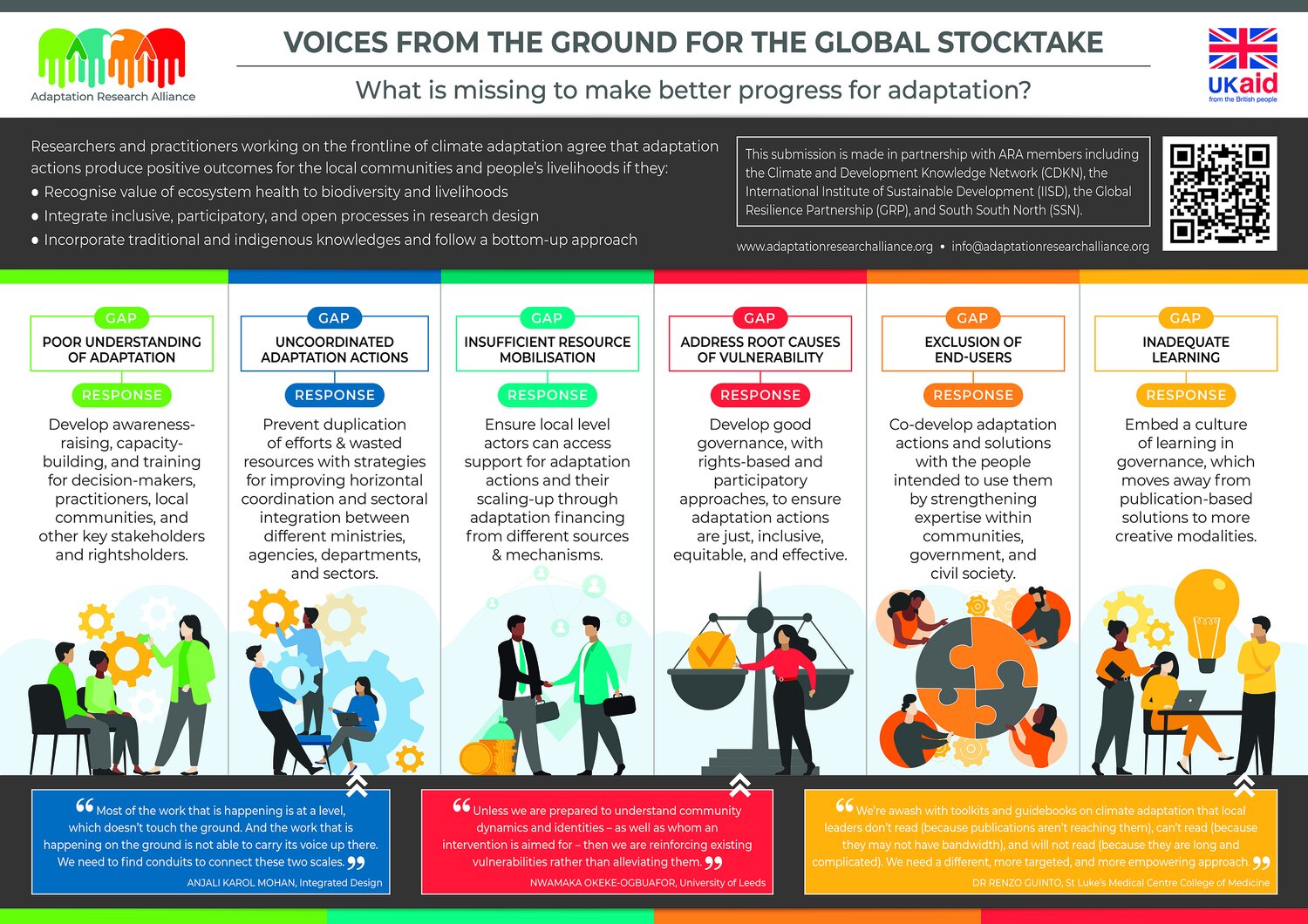The Adaptation Research Alliance (ARA) provided this update to its initial submission to the UNFCCC Global Stocktake (GST), bringing in the voices of researchers and practitioners working on the frontline of climate adaptation about what is missing to make better progress on adaptation.
The submission focused on better understanding the adaptation realities on the ground and how practitioners and researchers are currently able to contribute data and measures from the ground to the GST. This submission was focused on the adaptation aspects of the GST but touches on issues of finance, fairness and equity.
The submission was structured in two parts: first presenting what adaptation progress practitioners are seeing on the ground, and second focusing on considerations for the integration with national systems to feed into adaptation measurements in the GST.
“Unless we are prepared to understand community dynamics and identities - as well as whom an intervention is aimed for - we would be reinforcing existing vulnerabilities rather than alleviating them. We must be prepared to go through the complexity and messiness of these processes, otherwise, our interventions will keep widening inequalities.”
- Nwamaka Okeke-Ogbuafor, University of Leeds
Key points
- There is an urgent need for adaptation at the local community level; not only in response to future projected changes and risks, but also in addressing the losses and damages already happening.
- Local communities are already responding to climate change impacts using grassroots approaches that use their local and traditional knowledge to reduce 2 vulnerabilities and address risks – although these are mostly reactive coping strategies they are building resilience.
- There is a lack of sectoral integration and government coordination, partnerships are limited, and appropriate capacity and resources are not readily available. This impedes locally led adaptation actions and present barriers to scaling up adaptation planning and implementation.
- Some adaptation projects at the local levels are assessing adaptation impacts on human wellbeing, but are not investing in monitoring, evaluation and learning (MEL) for adaptation (often due to short term project cycle funding and lack of relevance to local community).
- Where local adaptation projects have a MEL system, they are generally collecting information on output-based indicators instead of outcome indicators.
- Feeding evidence from local actions into national systems require functional vertical integration and coordination.
- Understanding and utilising learning frameworks at the local level would allow the gathering of lessons learned and information-sharing.
- Using and expanding systems at national level to be able to aggregate information from adaptation projects already happening in some contexts needs further financial and capacity support.
Illustrative adaptation actions
The ARA Secretariat also carried out collaborative work with Member the United Nations University - Institute for Environment and Human Security (UNU-EHS), to capture illustrative adaptation actions. These were also submitted to the UNFCCC GST and are being adapted into factsheets that will generate wider awareness of the learnings Alliance Members have to share from their on-the-ground experience. View that submission here.
Related
- Adaptation Research for Impact Principles
- Seven priorities for an inclusive Global Goal on Adaptation
- Illustrative adaptation actions

Useful Links
ARA submission to the UNFCCC Global Stocktake (GST)
This submission shows gaps and solutions for achieving adaptation progress as identified by ARA members on the ground.
